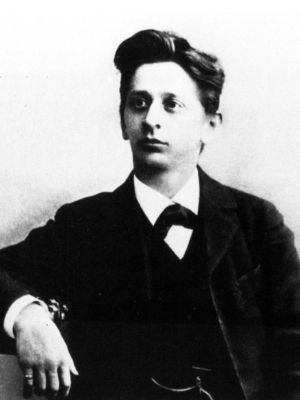
Alexander von Zemlinsky
Alexander von Zemlinsky
Alexander von Zemlinsky (1871–1942), in common with Gustav Mahler and Claude Debussy, was a decided modernist without ever embarking in a radically new musical direction like, for example, Arnold Schönberg, who was three years his junior. Nevertheless, Zemlinsky had an enormous influence on Schönberg in particular as a teacher, role model and later as a close friend. Zemlinsky’s position on the cusp of modernism led to him being neglected in musical circles for many years. His rediscovery in the 1980s started with his operas and led to a certain renaissance of his music. However, he remains a “known unknown.”
Zemlinsky was born in Vienna and grew up in the Leopoldstadt district that had a strong Jewish culture. His home town provided the ideal environment for an aspiring musician. Here Zemlinsky completed his musical education, soaked up the city’s musical life and achieved success as a composer under Brahms’s patronage. He found another patron in Gustav Mahler and ended up working as a widely respected opera conductor. However, as a decisive breakthrough continued to elude him, in 1911 Zemlinsky agreed to take over as Director of the New German Theatre in Prague. The city on the Vltava, where he was soon also appointed Director of a new Academy of Music, became the centre of his professional activities. Then, in 1927, Zemlinsky left for Berlin, where he worked as Kapellmeister at the Kroll Opera and at the Academy of Music.
For Zemlinsky, the non-religious son of a converted Jew, the Nazi Party’s seizure of power was a disaster. Offers of work and sources of income withered away and the final years of Zemlinsky’s life were dominated by efforts to escape the Nazis’ expanding power. In 1938 he was admitted to the USA, arriving as a refugee. He died after a severe illness in 1942.
As of: December 2023